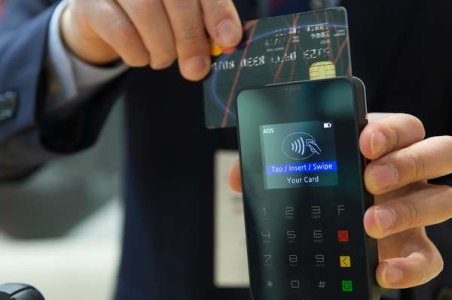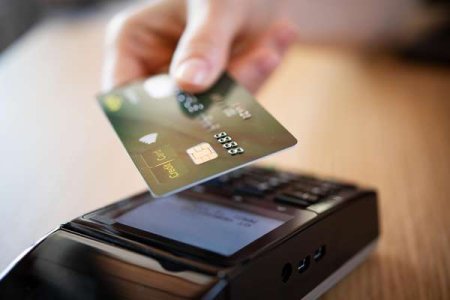Is going cashless taking away your freedom? Find out how businesses face consumer boycotts
As technology keeps advancing, our society has been steadily moving towards becoming a cashless one. While many businesses have embraced this trend, seeing it as a cost-effective and efficient way to handle transactions, some consumers are staunchly against it, arguing that it violates their personal rights and freedoms.
Now, let's dive into the details of this debate.
Facebook groups like Call Out Cashless Businesses urge its members to name and boycott businesses that don't accept cash payments. Mike Palmer, a resident of Melbourne and the group's founder, explained that his opposition to cashless businesses is based on the principles of ‘freedom of choice’.
Palmer hopes his advocacy will generate enough public pressure to dissuade businesses from transitioning to a cashless system. He acknowledges the convenience and security reasons business owners prefer cashless transactions but remains steadfast in his belief that people's rights should be safeguarded.

Many are also concerned that getting rid of the cash option will continue to have a negative impact on consumers in the long term.
One of the main worries for those favouring cash transactions is that digital payment systems could result in increased control over people's lifestyles by government institutions.
This debate has even made its way into the Australian nightlife scene. Fremantle bar and music club Freo Social are among the many businesses facing backlash due to their cashless policy.
While the majority of customers have responded positively, owner James Legge was surprised by the strong opinions expressed by some unhappy customers in response to this change.
Legge has argued that cashless payments not only enhance customer service but also improve health and safety measures for their staff. This point is particularly relevant during the pandemic, as handling cash poses a higher risk of infection.
However, the lingering effects of the COVID-19 crisis may contribute to the negative response towards the shift to cashless transactions.
Chrissie Maus, the Chief Executive Officer of the Fremantle Chamber of Commerce, believes that this backlash could be a residual effect of the pandemic, where people might be reacting to their choices being taken away during the lockdowns.
Moreover, customers are also concerned about potential bank fees associated with cashless payments, which could further burden their finances.
 Businesses worldwide must now face the tough decision of whether going cashless is worth forfeiting freedom of choice for their customers.
Businesses worldwide must now face the tough decision of whether going cashless is worth forfeiting freedom of choice for their customers.
Although transitioning into a cashless society may seem inevitable as technology pushes us forward, striking a balance and ensuring that consumer rights remain protected will be essential for any business's long-term success.
So, members of the Seniors Discount Club, we'd love to hear your thoughts. Do you believe in retaining the freedom of choice when it comes to payments, or is the world of cashless transactions the way of the future? Sound off in the comments below!
Now, let's dive into the details of this debate.
Facebook groups like Call Out Cashless Businesses urge its members to name and boycott businesses that don't accept cash payments. Mike Palmer, a resident of Melbourne and the group's founder, explained that his opposition to cashless businesses is based on the principles of ‘freedom of choice’.
Palmer hopes his advocacy will generate enough public pressure to dissuade businesses from transitioning to a cashless system. He acknowledges the convenience and security reasons business owners prefer cashless transactions but remains steadfast in his belief that people's rights should be safeguarded.

According to business owners who have adopted a ‘cashless’ approach, they claim that it provides a safer and more hygienic environment for their staff. Image by AhmadArdity from pixabay
Many are also concerned that getting rid of the cash option will continue to have a negative impact on consumers in the long term.
One of the main worries for those favouring cash transactions is that digital payment systems could result in increased control over people's lifestyles by government institutions.
This debate has even made its way into the Australian nightlife scene. Fremantle bar and music club Freo Social are among the many businesses facing backlash due to their cashless policy.
While the majority of customers have responded positively, owner James Legge was surprised by the strong opinions expressed by some unhappy customers in response to this change.
Legge has argued that cashless payments not only enhance customer service but also improve health and safety measures for their staff. This point is particularly relevant during the pandemic, as handling cash poses a higher risk of infection.
However, the lingering effects of the COVID-19 crisis may contribute to the negative response towards the shift to cashless transactions.
Chrissie Maus, the Chief Executive Officer of the Fremantle Chamber of Commerce, believes that this backlash could be a residual effect of the pandemic, where people might be reacting to their choices being taken away during the lockdowns.
Moreover, customers are also concerned about potential bank fees associated with cashless payments, which could further burden their finances.
Key Takeaways
- Businesses that ask for cashless payments face backlash and boycotts from a section of the community that believes refusing to take cash infringes on their personal rights.
- Melbourne resident Mike Palmer started a Facebook group, Call Out Cashless Businesses, to encourage boycotts of cashless businesses.
- Some campaigns arguing that cashless payments deny people's freedoms and rights started to emerge at the height of the COVID-19 pandemic.
- Fremantle bar and music club Freo Social is among the businesses facing backlash due to their cashless policy, with owner James Legge stating he was surprised by the level of backlash from some customers who were unhappy about the change.
Although transitioning into a cashless society may seem inevitable as technology pushes us forward, striking a balance and ensuring that consumer rights remain protected will be essential for any business's long-term success.
So, members of the Seniors Discount Club, we'd love to hear your thoughts. Do you believe in retaining the freedom of choice when it comes to payments, or is the world of cashless transactions the way of the future? Sound off in the comments below!









